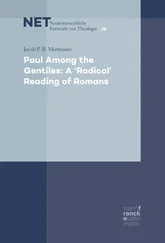Charles Gore - St. Paul's Epistle to the Romans - A Practical Exposition. Vol. II
Здесь есть возможность читать онлайн «Charles Gore - St. Paul's Epistle to the Romans - A Practical Exposition. Vol. II» — ознакомительный отрывок электронной книги совершенно бесплатно, а после прочтения отрывка купить полную версию. В некоторых случаях можно слушать аудио, скачать через торрент в формате fb2 и присутствует краткое содержание. Издательство: Иностранный паблик, Жанр: foreign_religion, foreign_antique, foreign_prose, на английском языке. Описание произведения, (предисловие) а так же отзывы посетителей доступны на портале библиотеки ЛибКат.
- Название:St. Paul's Epistle to the Romans: A Practical Exposition. Vol. II
- Автор:
- Издательство:Иностранный паблик
- Жанр:
- Год:неизвестен
- ISBN:нет данных
- Рейтинг книги:5 / 5. Голосов: 1
-
Избранное:Добавить в избранное
- Отзывы:
-
Ваша оценка:
- 100
- 1
- 2
- 3
- 4
- 5
St. Paul's Epistle to the Romans: A Practical Exposition. Vol. II: краткое содержание, описание и аннотация
Предлагаем к чтению аннотацию, описание, краткое содержание или предисловие (зависит от того, что написал сам автор книги «St. Paul's Epistle to the Romans: A Practical Exposition. Vol. II»). Если вы не нашли необходимую информацию о книге — напишите в комментариях, мы постараемся отыскать её.
St. Paul's Epistle to the Romans: A Practical Exposition. Vol. II — читать онлайн ознакомительный отрывок
Ниже представлен текст книги, разбитый по страницам. Система сохранения места последней прочитанной страницы, позволяет с удобством читать онлайн бесплатно книгу «St. Paul's Epistle to the Romans: A Practical Exposition. Vol. II», без необходимости каждый раз заново искать на чём Вы остановились. Поставьте закладку, и сможете в любой момент перейти на страницу, на которой закончили чтение.
Интервал:
Закладка:
This, then, is the plain summary. Israel is rejected because, after every offer, and with every opportunity, they have refused God's leading, refused to be docile, refused to believe, refused to obey.
What shall we say then? That the Gentiles, which followed not after righteousness, attained to righteousness, even the righteousness which is of faith: but Israel, following after a law of righteousness, did not arrive at that law. Wherefore? Because they sought it not by faith, but as it were by works. They stumbled at the stone of stumbling; even as it is written,
Behold, I lay in Zion a stone of stumbling and a rock of offence:
And he that believeth on him shall not be put to shame.
Brethren, my heart's desire and my supplication to God is for them, that they may be saved. For I bear them witness that they have a zeal for God, but not according to knowledge. For being ignorant of God's righteousness, and seeking to establish their own, they did not subject themselves to the righteousness of God. For Christ is the end of the law unto righteousness to every one that believeth. For Moses writeth that the man that doeth the righteousness which is of the law shall live thereby. But the righteousness which is of faith saith thus, Say not in thy heart, Who shall ascend into heaven? (that is, to bring Christ down:) or, Who shall descend into the abyss? (that is, to bring Christ up from the dead.) But what saith it? The word is nigh thee, in thy mouth, and in thy heart: that is, the word of faith, which we preach: because if thou shalt confess with thy mouth Jesus as Lord, and shalt believe in thy heart that God raised him from the dead, thou shalt be saved: for with the heart man believeth unto righteousness; and with the mouth confession is made unto salvation. For the scripture saith, Whosoever believeth on him shall not be put to shame. For there is no distinction between Jew and Greek: for the same Lord is Lord of all, and is rich unto all that call upon him: for, Whosoever shall call upon the name of the Lord shall be saved. How then shall they call on him in whom they have not believed? and how shall they believe in him whom they have not heard? and how shall they hear without a preacher? and how shall they preach, except they be sent? even as it is written, How beautiful are the feet of them that bring glad tidings of good things!
But they did not all hearken to the glad tidings. For Isaiah saith, Lord, who hath believed our report? So belief cometh of hearing, and hearing by the word of Christ. But I say, Did they not hear? Yea, verily,
Their sound went out into all the earth,
And their words unto the ends of the world.
But I say, Did Israel not know? First Moses saith,
I will provoke you to jealousy with that which is no nation,
With a nation void of understanding will I anger you.
And Isaiah is very bold, and saith,
I was found of them that sought me not;
I became manifest unto them that asked not of me.
But as to Israel he saith, All the day long did I spread out my hands unto a disobedient and gainsaying people.
In this passage St. Paul gives us the other side of the question of the rejection of the Israelites. God had retained an absolute freedom, not to be questioned by men, to reject whom He willed. That was the first point. But can we see whom our God wills to reject, or why in particular He rejected (though not finally, as will appear) the chosen people? It is because they failed in faith. And faith is precisely that which is necessary to maintain correspondence with God – it is the faculty of fellowship with Him. They failed because the false principle of justification by works had obscured in their minds the need and meaning of faith. The false principle meant, as we have already seen, the maintaining an accepted standard of conduct and divine service, especially in outward matters, and for the rest claiming to be left alone. The accepted standard was that which distinguished Israel from the rest of the world, and what they had become accustomed to. It was a righteousness of 'their own.' They prided themselves on it. Their public opinion required its observance. It had come to usurp the place of any direct relationship to the voice of God. They had no idea that God could have anything more or deeper to require of them. They had lost personal touch with Him. Therefore seeking to establish this, their own righteousness, they failed to submit themselves to the (now newly revealed) righteousness of God in Christ. This unprogressiveness of the Jewish ideal, this substitution of the accepted standard under the law for the word of God, on the part of the Pharisees, the religious representatives of Israel, is precisely what the pages of the Gospel record. Therefore the 'corner stone of sure foundation' for the divine building became to them the stone on which they stumbled and fell. And yet that the law was a temporary expedient, and not the whole counsel of God, was the deepest witness of the Old Testament; and in being false to the further revelation of the will of God in Christ, they were false to their own deepest principles. All this ground we have gone over already, and need not traverse again 55 55 See vol. i. pp. 7 ff., 165 f., 250 ff.
.
So also we have already become familiar with the simplicity of the message of God in Christ, and the simplicity of the faith which, rooted in the consciousness of sin and need, and equally possible for all men who can share this consciousness, is required to welcome God's offer, and so be brought by Christ into living union with Him. All this St. Paul has already elaborated, and is here only resuming and recapitulating by the way. But one or two points in the recapitulation require notice.
1. St. Paul takes the basis of his statement of the principle of grace and faith out of the heart of the books of Moses – the idea of the 'word very nigh thee,' of the simple message claiming only to be simply accepted, and of the 'very present help' of a gracious God needing only to be welcomed. The fact is that St. Paul usually idealizes when he treats of 'the law of Moses'; as, for example, when he here says that 'Moses writeth that the man that doeth the righteousness … shall live thereby,' as if that was all that Moses said. The principle of law, as Saul the Pharisee had learned to understand it, is the dominant principle in the five Books of the Law, but not the only one. 'Grace, already existing in the Jewish theocracy, was the fruitful germ deposited under the surface, which was one day to burst forth and become the peculiar character of the new covenant 56 56 Godet in loc.
.' The God of the new covenant is the God also of the old, and was there already intimating His truer and deeper character. To this St. Paul bears witness by resting his statement of the principle of the new covenant upon the words of the old.
2. In this passage we have the germ of what we call the creed. The lordship of Jesus, in the sense which implies His proper divinity, and His resurrection and triumph over death – was already matter of public confession in the Christian church: to make profession that 'Jesus is Lord' qualified for 'the salvation' 57 57 Cf. 1 Cor. xii. 3. The lordship of Jesus, we see in this passage, means that He can have applied to Him the sayings of the Old Testament about the Lord Jehovah; and can be 'called upon' as such in prayer (Joel ii. 32).
: and in this lay hid all that is essential to the Christian creed. Already then in the earliest church subjective faith involved a certain objective and public creed 58 58 Cf. 1 Cor. xv. 1-3.
which came very soon to be called 'the faith.' In this passage also, as in xiv. 9 and in St. Peter's epistle, we recognize, as an element in the common tradition, the belief in the Descent into Hades (the abyss).
Интервал:
Закладка:
Похожие книги на «St. Paul's Epistle to the Romans: A Practical Exposition. Vol. II»
Представляем Вашему вниманию похожие книги на «St. Paul's Epistle to the Romans: A Practical Exposition. Vol. II» списком для выбора. Мы отобрали схожую по названию и смыслу литературу в надежде предоставить читателям больше вариантов отыскать новые, интересные, ещё непрочитанные произведения.
Обсуждение, отзывы о книге «St. Paul's Epistle to the Romans: A Practical Exposition. Vol. II» и просто собственные мнения читателей. Оставьте ваши комментарии, напишите, что Вы думаете о произведении, его смысле или главных героях. Укажите что конкретно понравилось, а что нет, и почему Вы так считаете.












